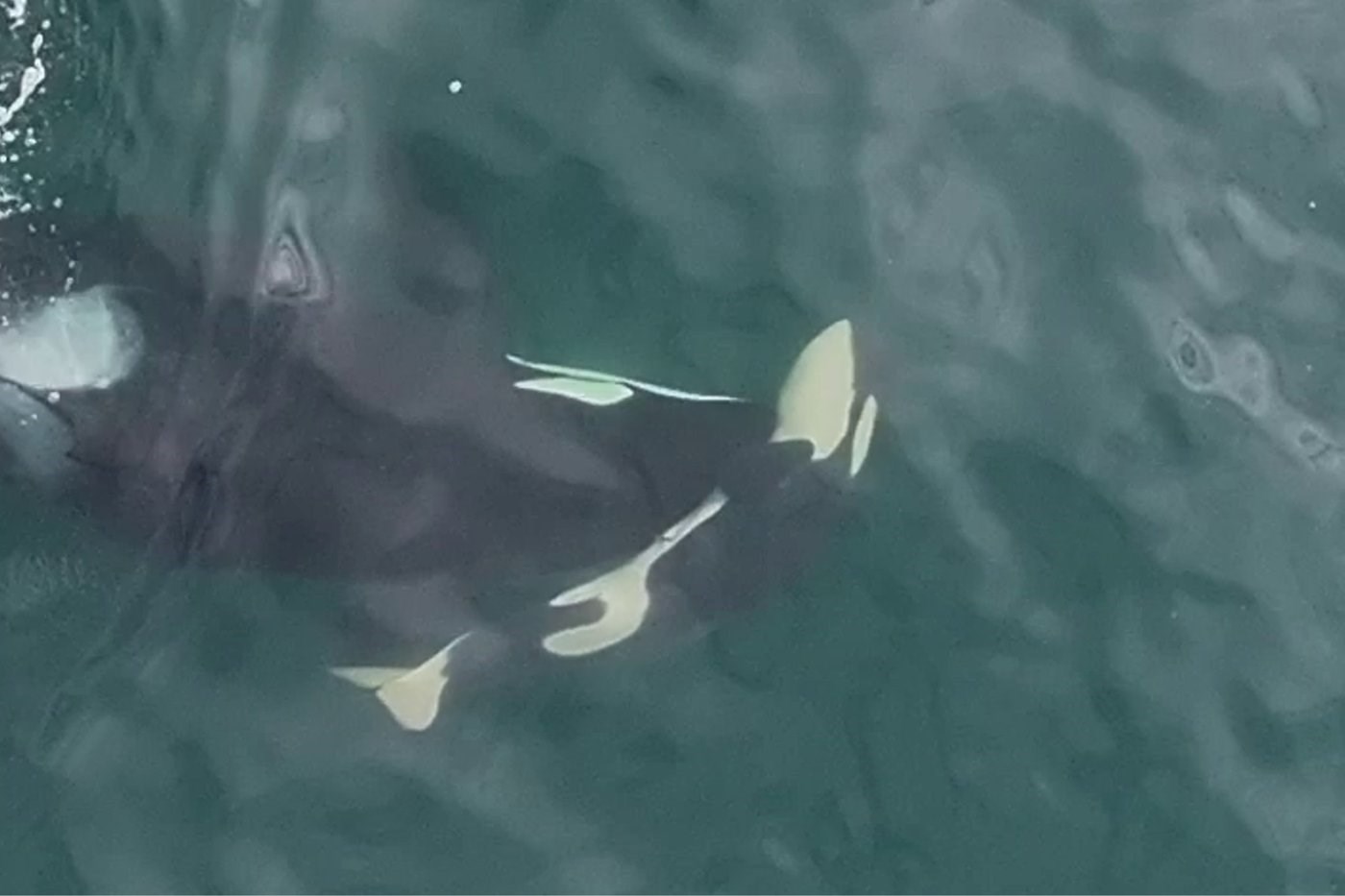
A female southern resident orca, designated J36, pushes a deceased newborn calf, which researchers said they believed to be full term or near full term, in an undated handout photo. THE CANADIAN PRESS/Handout — Center for Whale Research (Mandatory Credit)
Republished September 13, 2025 - 5:46 PM
Original Publication Date September 13, 2025 - 4:41 PM
VICTORIA — The discovery of a dead female orca calf near Vancouver Island in American waters continues to raise questions among researchers.
Michael Weiss, research director with the American-based Center for Whale Research, said in emailed statement that it is not clear whether the calf was stillborn or died shortly after birth.
Weiss said researchers cannot assign any individual death to a particular factor in the ecosystem.
But Weiss said that "low reproductive success in this population" is tied to high levels of pollutants — particularly industrial chemicals known as PCBs — that inhibit immune and reproductive function and a lack of prey, especially Chinook salmon, which are orcas' preferred prey.
CWR researchers confirmed Friday reports of an orca pushing the deceased calf in Rosario Strait separating the San Juan Islands from mainland Washington State.
The centre said that the calf was still attached to its umbilical cord, adding that calf was either full term or near full term based on its size.
Both Canada and the United States list southern resident orcas as endangered, with a total of 74 members living in three pods — extended families composed of mothers and their offspring — titled J, K and L.
The centre said the animal pushing the deceased calf was southern resident J36, also known as Alki, as described by the Orca Conservancy based in Seattle, WA.
The centre said this calf would have been born within the last three days, based on its last observation of J36.
It said in its statement that it will release additional information as it becomes available. SeaDoc Society, Sealife Response, Rehabilitation and Research and the Whale Museum — all based in the United States — are also participating in the investigation.
This report by The Canadian Press was first published September 13, 2025.
News from © The Canadian Press, 2025